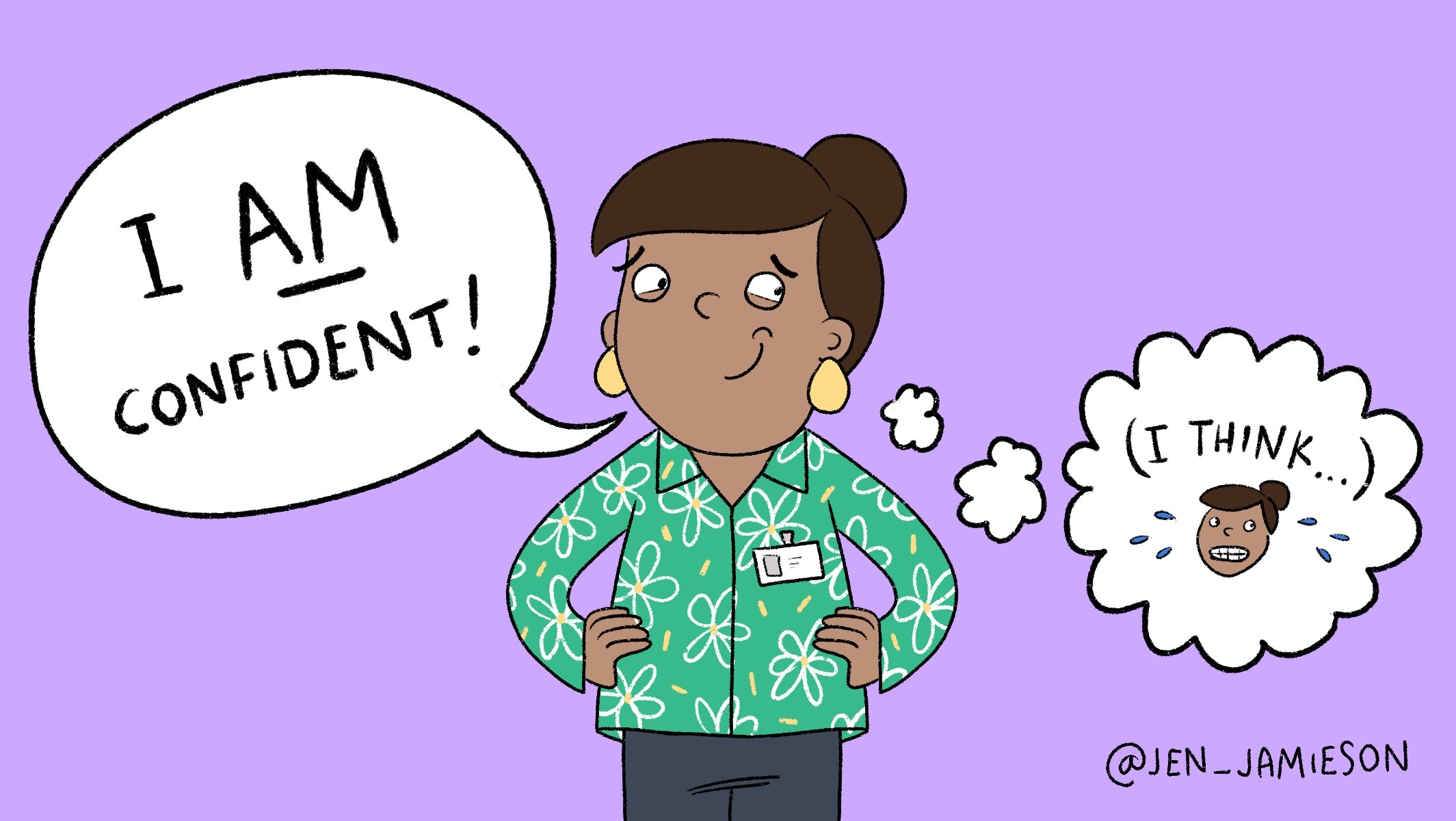

Dear We Are Teachers,
I really wanted the last first grade position I interviewed for. After the interview, I asked for feedback on how I could improve. The interviewer said, “The panel and I agreed that you didn’t seem confident in what you were saying or in your abilities. It was hard for us to envision you projecting confidence in the classroom.” I feel like I’m being judged for being nervous during an interview, which 1) I can’t control and 2) seems very normal. Is this fair?
—Nervous Nora
Dear N.N.,
I totally understand how this wouldn’t seem fair, especially since you weren’t being evaluated in a classroom setting. You’re probably thinking, “Uh, I’m totally confident in front of first graders!”
But think about their POV. They have no idea what you’re like in front of first graders! All they have to go off of is how you present in the interview. If I were a principal and had to pick between two equally great teachers and one came across warm and confident and the other came across shaky and nervous, I would probably go with the former (although if I had time, I would have both teachers come back to teach a sample lesson).
Want to build up your interview skills? Check out these 3 ways AI can help you practice your interview skills to wow the next panel you find yourself facing.
Dear We Are Teachers,
The districts in my area look down on charter schools and on the teachers who have worked in them. I’ve not been picky about working in a charter or a district because teaching jobs are very competitive in my area and I needed work as a new teacher.
Now I have 15 years experience (in districts and charters), but it feels like I can’t get a job in a district near me because I was a “charter school teacher.” Is this in my head or is the charter bias a real thing? How can I get around it?
—Charter School Stain
Dear C.S.S.,
I think it might be in your head. Plenty of charter schools retain talented, dedicated teachers. I can’t imagine that the charter experience alone would be enough to turn principals away. Plus, from what I know from administrators, references from supervisors are a far better judge of a teacher than the type of school.
If you get another rejection, ask the principal if they’d mind sharing feedback on what you could do better or what from your resume gave them pause. Have you taught at lots of different schools? That could be a red flag for principals who want a longer-term commitment from teachers.
Dear We Are Teachers,
I’m newly deaf with cochlear implants and going into my first year. I’m very worried about how to handle this in the classroom when I can’t hear a student, with my principal in a faculty meeting, or in a parent-student conference if I misunderstand something. Basically, I’m just worried about being newly deaf and a new teacher. Do you have any advice, or can you connect me with a teacher who might?
—Speak Up
Dear S.U.,
Since I happen to know a teacher who is deaf, I’ll let him take over for this question:
“It’s totally normal to be nervous about how this huge new transition will play out in the context of another huge new transition—teaching. You can do this! The most important thing is to communicate what you need.
“First, be sure to let your administration know. Let them know before the school year starts so they can be aware in time for in-service. They also need to know in case they have advice on communication with parents and faculty. I know it might feel scary, but it’s very important that they know how to support you.
“Next, seek out ADA accommodations as necessary. If you don’t already have a Roger Pen or transcription device, seeking out ADA accommodations can help you with access to them. Additionally, your school might be willing to work with you on classroom placement (e.g., not next to the band hall) as well as soundproofing installations that can make your classroom quieter. Finally, if you’re not comfortable talking to parents on the phone, ask for that as an accommodation.
“Finally, my personal recommendation is to be up front with students, but do what you’re comfortable with. I tell students on the first day that I’m deaf and show them my cochlear implant and how it works. I think their interest (Yay! Not another get-to-know-you survey) combined with my vulnerability sort of connect us from the get-go. I make sure to tell them what’s most difficult for me (mumbling, talking when I can’t see your face, etc.) and to not be offended if they think I’m ignoring them.
“I hope this helps. You’ve got this!”